
A superpower is a state with a dominant position characterized by its extensive ability to exert influence or project power on a global scale. This is done through the combined means of economic, military, technological, political and cultural strength as well as diplomatic and soft power influence. Traditionally, superpowers are preeminent among the great powers.

The Bush Doctrine refers to multiple interrelated foreign policy principles of the 43rd President of the United States, George W. Bush. These principles include unilateralism and the use of preemptive war.

The terms Google bombing and Googlewashing refer to the practice of causing a website to rank highly in web search engine results for irrelevant, unrelated or off-topic search terms by linking heavily. In contrast, search engine optimization (SEO) is the practice of improving the search engine listings of web pages for relevant search terms.
The phrase "balance of terror" is usually, but not invariably, used in reference to the nuclear arms race between the United States and the Soviet Union during the Cold War.

Patrick Albert Moore is a Canadian industry consultant, former activist, and past president of Greenpeace. Since leaving Greenpeace in 1986, Moore has criticized the environmental movement for what he sees as scare tactics and disinformation, saying that the environmental movement "abandoned science and logic in favor of emotion and sensationalism". According to Greenpeace, Moore is "a paid spokesman for the nuclear industry, the logging industry, and genetic engineering industry" who "exploits long-gone ties with Greenpeace to sell himself as a speaker and pro-corporate spokesperson".
The term "new world order" refers to a new period of history evidencing dramatic change in world political thought and the balance of power in international relations. Despite varied interpretations of this term, it is primarily associated with the ideological notion of world governance only in the sense of new collective efforts to identify, understand, or address global problems that go beyond the capacity of individual nation-states to solve.

Jonathan Edward Schell was an American author and visiting fellow at Yale University, whose work primarily dealt with campaigning against nuclear weapons.
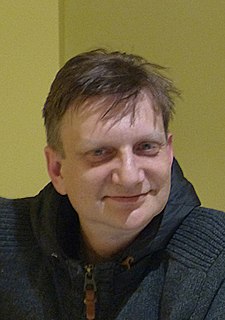
Andrew Orlowski is a British columnist, investigative journalist and former executive editor of the IT news and opinion website The Register. In 2021, Orlowski became a business columnist for The Daily Telegraph.
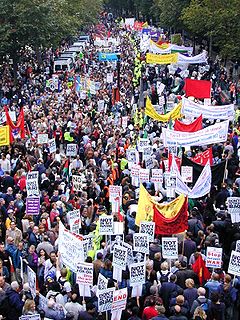
On 15 February 2003, a coordinated day of protests started across the world in which people in more than 600 cities expressed opposition to the imminent Iraq War. It was part of a series of protests and political events that had begun in 2002 and continued as the war took place. At the time, social movement researchers described the 15 February protest as "the largest protest event in human history".
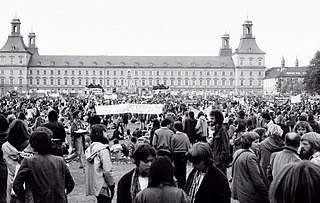
The anti-nuclear movement is a social movement that opposes various nuclear technologies. Some direct action groups, environmental movements, and professional organisations have identified themselves with the movement at the local, national, or international level. Major anti-nuclear groups include Campaign for Nuclear Disarmament, Friends of the Earth, Greenpeace, International Physicians for the Prevention of Nuclear War, Peace Action and the Nuclear Information and Resource Service. The initial objective of the movement was nuclear disarmament, though since the late 1960s opposition has included the use of nuclear power. Many anti-nuclear groups oppose both nuclear power and nuclear weapons. The formation of green parties in the 1970s and 1980s was often a direct result of anti-nuclear politics.
Throughout its history, the policies and objectives of the non-governmental environmental protection and conservation organization Greenpeace have been criticized by a number of groups, including national governments, members of industry, former Greenpeace members, scientists, political groups, and other environmentalists. The organization's methods, such as the use of direct action, have also led to controversy and legal action.
Anti-nuclear organizations may oppose uranium mining, nuclear power, and/or nuclear weapons. Anti-nuclear groups have undertaken public protests and acts of civil disobedience which have included occupations of nuclear plant sites. Some of the most influential groups in the anti-nuclear movement have had members who were elite scientists, including several Nobel Laureates and many nuclear physicists.

A peace movement is a social movement which seeks to achieve ideals, such as the ending of a particular war or minimizing inter-human violence in a particular place or situation. They are often linked to the goal of achieving world peace. Some of the methods used to achieve these goals include advocacy of pacifism, nonviolent resistance, diplomacy, boycotts, peace camps, ethical consumerism, supporting anti-war political candidates, supporting legislation to remove profits from government contracts to the military–industrial complex, banning guns, creating tools for open government and transparency, direct democracy, supporting whistleblowers who expose war crimes or conspiracies to create wars, demonstrations, and political lobbying. The political cooperative is an example of an organization which seeks to merge all peace-movement and green organizations; they may have diverse goals, but have the common ideal of peace and humane sustainability. A concern of some peace activists is the challenge of attaining peace when those against peace often use violence as their means of communication and empowerment.

A potential superpower is a state or a political and economic entity that is speculated to be—or to have the potential to soon become—a superpower.

Anti-nuclear protests began on a small scale in the U.S. as early as 1946 in response to Operation Crossroads. Large scale anti-nuclear protests first emerged in the mid-1950s in Japan in the wake of the March 1954 Lucky Dragon Incident. August 1955 saw the first meeting of the World Conference against Atomic and Hydrogen Bombs, which had around 3,000 participants from Japan and other nations. Protests began in Britain in the late 1950s and early 1960s. In the United Kingdom, the first Aldermaston March, organised by the Campaign for Nuclear Disarmament, took place in 1958. In 1961, at the height of the Cold War, about 50,000 women brought together by Women Strike for Peace marched in 60 cities in the United States to demonstrate against nuclear weapons. In 1964, Peace Marches in several Australian capital cities featured "Ban the Bomb" placards.
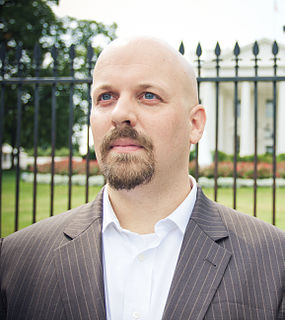
Philip David Radford is an American activist who served as the executive director of Greenpeace USA. He is the founder and President of Progressive Power Lab, an organization that incubates companies and non-profits that build capacity for progressive organizations, including the Progressive Multiplier Fund and Membership Drive. Radford is a co-founder of the Democracy Initiative, was founder and executive director of Power Shift, and is a board member of the Mertz Gilmore Foundation. He has a background in grassroots organizing, corporate social responsibility, climate change, and clean energy.
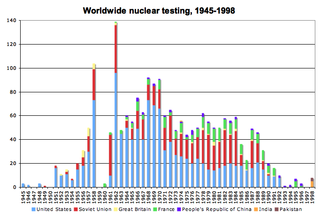
The application of nuclear technology, both as a source of energy and as an instrument of war, has been controversial.
Global policeman is an informal term for a state which seeks or claims global hegemony and the right to intervene in other nations. It has been used, firstly for the United Kingdom and, since 1945, of the United States. Nevertheless, the two terms hegemon and global policeman are not identical in meaning. The former term defines capacity for dominant control anywhere on earth, whereas the latter may also include small or large areas outside control, along with monitoring and attempted enforcements, but does not define any level of effectiveness.













